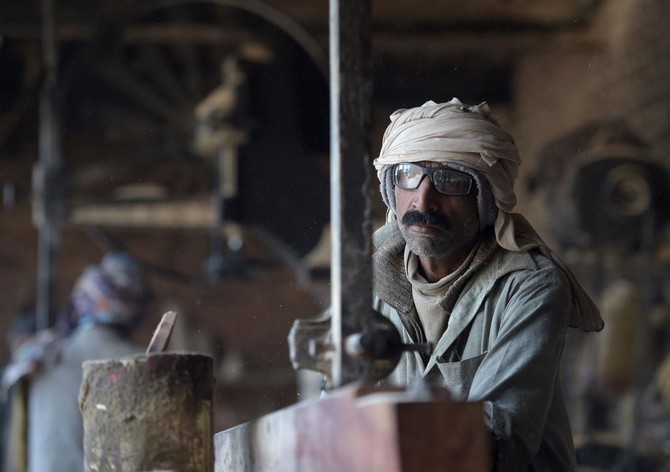PAKISTAN: When Pakistani authorities burst into a makeshift hospital in Lahore this year, doctors were caught mid-way through two illegal kidney transplants, the local donors and Omani clients still unconscious on the tables.
The doctors were allowed to finish the operation then arrested, along with their assistants and the Omanis, in a raid Pakistani authorities say is a turning point in their battle against organ trafficking.
Pakistan has long been an international hub for the illegal kidney trade, but medical and local authorities complain they have been unable to act against the practice, frustrated by ineffective enforcement policies and what they perceive as a lack of political will to crack down.
Organ donation is legal so long as it is voluntary, given without duress or the exchange of money.
Pakistani clerics have ruled it Islamic, but a lack of awareness and the pervasive belief that it is taboo for Muslims mean there is a shortage of those willing to donate.
The limited supply, observers say, sees Pakistan’s wealthy routinely exploit its millions of poor with the help of an organ trade mafia.
Kidneys can be bought so cheaply that overseas buyers are also tapped in, largely from the Gulf, Africa and the United Kingdom.
In many countries such trafficking is confined to the shadows, in Pakistan — it is brazen.
Within minutes of an AFP reporter entering the lobby of an upmarket general hospital in the capital Islamabad, staff had helped him find a so-called “agent” who offered to get a donor and facilitate government approval for a kidney transplant, all for a tidy $23,000.
The government’s Human Organs Transplant Authority (HOTA) says it is toothless. If a donor claims they give their consent, “there is nothing else we can do,” says Dr. Suleman Ahmed, a HOTA monitoring officer.
But the April 30 raid in Lahore was the beginning of a new clampdown, suggests Jamil Ahmad Khan Mayo, a deputy director of the Federal Investigation Agency (FIA).
Enforcement of current laws was in the hands of provincial authorities — and thus restricted by provincial boundaries — until March of this year, when those limits were removed by the decision to assign the powerful FIA to such cases, he explains.
In the Lahore case, all 16 people arrested remain behind bars as the investigation continues. They face up to a decade in prison.
“By this raid we would like to send a strong message abroad that Pakistan is no longer a safe haven for (illegal) kidney transplantation,” Ahmad says.
Experts suggest there is a need to tackle the root causes of the rampant underground industry.
“This illegal trade benefits the rich and elites of the country,” says Mumtaz Ahmed, head of nephrology at the government-run Benazir Bhutto hospital in Rawalpindi.
Ahmed, a member of a government investigation commission on the kidney trade, claims that is why lawmakers are unwilling to enforce penalties. FIA officials have vowed they will be indiscriminate in their bid to end organ trafficking.
Some 25,000 people suffer kidney failure each year in Pakistan, but just 10 percent receive dialysis and a mere 2.3 percent are able to get a transplant, according to the Sindh Institute of Urology and Transplant (SIUT), a regional leader in kidney transplants headquartered in Karachi.
“Many people come to us in government hospitals and bring their family donors willing to donate kidneys,” says Ahmed.
“Then suddenly they shift to private hospitals when they learn that they can buy a kidney from there.”
The high demand creates a market that inhabitants of Pakistan’s vast rural areas see as an opportunity to drag themselves out of poverty.
Employed in factories, fields and brick kilns, they borrow money from employers for medical bills or to raise children, but are unable to repay their debt.
Instead they are forced to work it off in a never-ending cycle of bonded labor — one they hope to break with the income from selling their organs.
Bushra Bibi, stiff with the pain she has suffered since selling her kidney years ago, is one of them.
Crying softly, Bibi recounts how her father needed the money for medical treatment and to pay off a loan — so, 12 years ago, she sold her organ for 110,000 rupees ($1,000).
With her father-in-law in the same predicament, her husband followed suit. But their desperate move has left them in chronic pain, struggling to work and care for their five children, and as a result owing even more money than when they began.
“I can’t sweep, people talk about me when I can’t finish my work,” Bibi says, tears rolling down her cheeks.
The agony of giving birth after her kidney operation, she says, is “known to me only and my God.”
Bibi and her family live in the fertile Sargodha district of Punjab province, where Pakistan’s best oranges are produced.
It is also a region where so many families have been caught up in the kidney trade that resident Malik Zafar Iqbal says he has formed a union to fight for donors’ rights.
Showing AFP documents with hundreds of names listed, he says he has met with authorities, but not yet managed to achieve better conditions for members.
“I sold my kidney for 104,000 rupees. One hardly gets enough,” he says.























